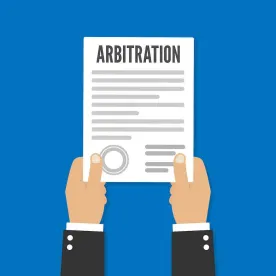On March 22, 2021, the U.S. Supreme Court granted certiorari in the case brought by Servotronics Inc., where it challenged the Seventh Circuit’s decision to reject discovery pursuant to 28 U.S.C. § 1782 for use in a private arbitration brought by Rolls-Royce PLC in London. The Supreme Court’s decision should resolve the current circuit split on the question of whether Section 1782 can be used for private international arbitration, which has been an ongoing topic of interest among international arbitration practitioners and scholars.
The Fourth and Sixth Circuits held that Section 1782 can be used for private international arbitrations, and the Second, Fifth, and Seventh Circuits held that it cannot. We previously wrote about the Fourth Circuit’s decision in Servotronics, Inc. v. Boeing Co., 954 F.3d 209 (4th Cir. 2020) here. A couple months after the Fourth Circuit’s decision to permit the use of Section 1782 in private international arbitrations, on September 22, 2020, the Seventh Circuit held the opposite, finding that a private foreign arbitration is not a “proceeding in a foreign or international tribunal” within the meaning of the statute. Servotronics, Inc. v. Rolls-Royce PLC, 975 F.3d 689, 690 (7th Cir. 2020). Rather, the Seventh Circuit found that a “foreign tribunal” in the context of Section 1782 means “a governmental, administrative, or quasi-governmental tribunal operating pursuant to the foreign country’s ‘practice and procedure’” and therefore, excludes private international arbitration. Id. at 695.
If the Supreme Court reverses the Seventh Circuit decision, it will open up U.S.-style discovery, which has typically been perceived to be expansive and broader than what is permitted in international arbitration, to litigants in private foreign arbitration proceedings. If the Supreme Court affirms the Seventh Circuit decision, the applicability of Section 1782 will be limited to assisting judicial proceedings and governmental tribunals abroad, but it will no longer be available for private arbitration. Litigants familiar with U.S.-style discovery may no longer be able to take advantage of Section 1782 to assist them with gathering evidence and testimony from parties and witnesses located in the U.S. Whichever way it comes out, the Supreme Court’s decision will materially influence how litigants in private arbitrations approach discovery and strategize with respect to documents and witnesses in the U.S.




 />i
/>i
